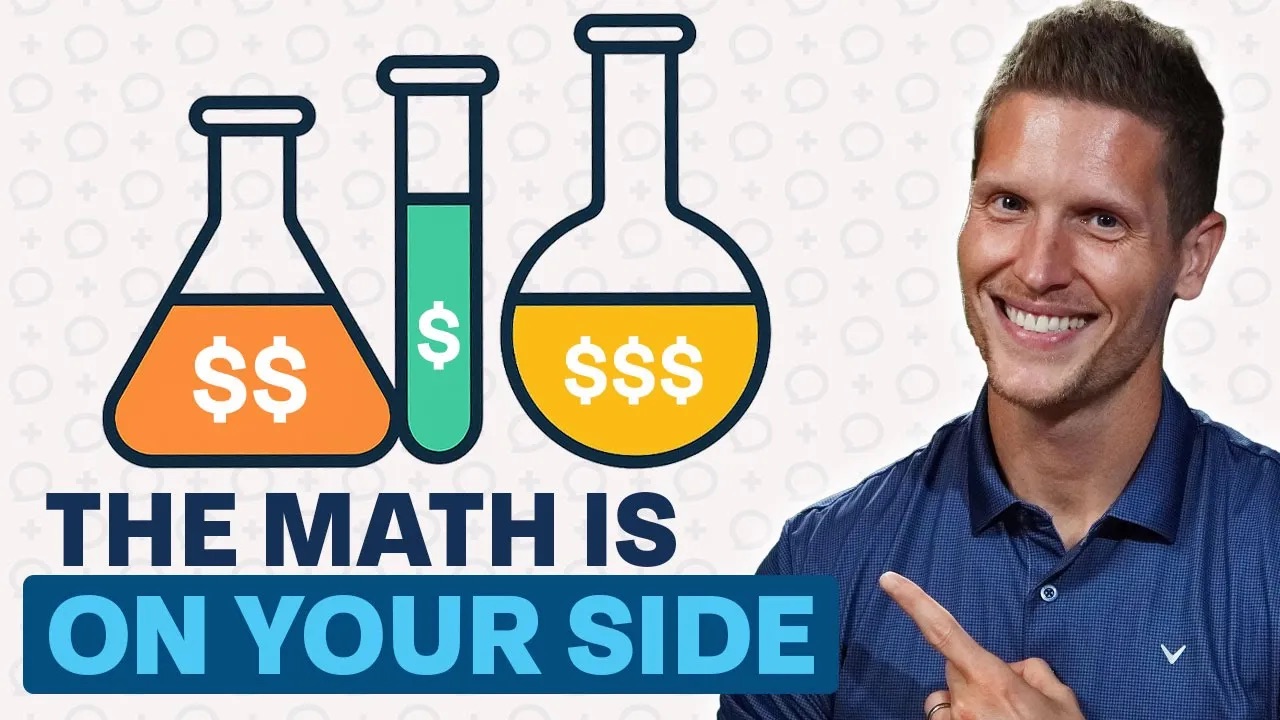We are going to start with a spicy question that I think a lot of people have right now. Alright, it's from Alice. She says, "With student loan forgiveness being overturned by the Supreme Court and payments resuming soon, how should I prioritize my student loans? I haven't had to pay them for the last three years, and they are 4.6% interest. When payments resume, it's going to be very hard to save for a house. That's what she's thinking about. Thanks."
I think a lot of people are maybe in this situation, and I think it's a good question. What do you think? How should they prioritize these? Yeah, this one's really hard, right? Because I think a lot of people have been on this yo-yo. I know we've seen this firsthand with many of our team members here. This thing is going to happen, and no, it's not going to happen, that is going to happen, it's not going to happen. I think a lot of people feel whipsawed. Now that we finally know where we are and have some certainty about what these circumstances will look like, I think a lot of people are asking the question, "Okay, well now what? Now what do I do?"
Well, what I love about the guidance and advice that we have talked about in the past about debt repayment is that it still holds true today. At its simplest form, here's how I would think about approaching your student loan payments: With every dollar that you have the opportunity to command, you get to determine the best use of that dollar. You can put that dollar towards your student loans or invest it to build your wealth. The mathematics should drive your decision. For example, if your student loans have a 4.6% interest rate, every dollar that you prepay will essentially earn a 4.6% return on investment (ROI). However, if you are a young person and you understand the wealth multiplier effect, you might want to consider investing that dollar, as it could potentially grow to $88 by the time you reach 65. So, it might be more advantageous to begin building dollars there than satisfying 4.6% interest. Because right now, we were talking about this a couple of days ago, Brian, some of what we used to think was high interest given where cash returns and yields are right now is not as high of interest as it used to be. I mean, 4.6% is less than you can make on a high-yield savings account right now.
Yeah, the risk-free rate of return has been pushed up to closer to five percent now because of that. And you think about the equity risk premium of what you expect your money to earn for you, it's going to probably push up what classifies from high-interest to low-interest debt. It's going to be somewhere for somebody who's in their 20s, that's probably around the seven-ish range, you know? And for somebody who's in their 30s, it's in the six-ish range. For somebody who's in their 40s, it's in the fives. But you need to use that because what I don't want you to do, and that's why I love the
financial order of operations, if you go to
moneyguy.com/resources, is that you still need to not skip out on emergency reserves, your tax-free growth opportunities with Roth investments, and then another retirement account. So, in Step six, you've got to build that base level because I'm more worried about people. I want you to pay your student loan, get back, you will start having to pay your student loans, but make it where they're not growing. But when you get to the point of you're trying to figure out if you're accelerating your debt repayment or investing to build your army of dollars, I'm more worried for everybody who's from age 20 all the way up to 45. You've got to do the get-rich activities first to build wealth. And then once you get in your mid-40s, now we can start worrying about how do we preserve the wealth, and that's where we will start paying down low-interest credit. And it's weird because low-interest was two, three, four percent. Now we're in this weird time where cash is earning five percent, so we have to update the number and know that yes, some of these, if you have a 4.6% interest rate on your student loan, relatively speaking to where the market is right now, that's a low-interest rate. So, treat it that way. And as you do make your plan on how you're not only going to pay your debt back but also have a step-by-step guide into building wealth to ensure that you are building that wealth by the time you get in your mid-40s, that's an important part.
Now, I did want to close out with one quick thing. This whole thing with student loan debt, I've told you guys I think that education is the greatest thing in the world, but we need to get really serious, just like we've had during the pandemic, we had all the payroll protection and all that stuff. We need a bipartisan, all parties, all stakeholders. We need the colleges to get involved. We need both parties to get involved because I feel like young people—I can almost cut the anger that's around this—and I just think that I hope that all the stakeholders, including the colleges, because they bear some responsibility in this too, with our government, can come together on this. Because this was—I hated how it created a situation where it was almost like two different groups were rooting against each other with that ruling of the Supreme Court, and I didn't like that. Because we have a broken problem that needs some type of solution, but it's a solution we need to come and have an honest conversation about.
I'm going to throw one other thing on here. One of the things that I often get asked when people are asking about student loans and student loan repayment is, a lot of times, when you are accruing student loans, they're not all the same. You have some that are high interest, some are low interest, and so we get this question all the time. Guys, should I do the debt snowball? Is that the right way to do this? And for those of you that aren't familiar with that, the snowball is you pay off your smallest balance first and then once you do that, you move to your next smallest and next smallest and next smallest. That is a behavioral approach to pay off debt. I'm not going to say that there's anything necessarily or inherently wrong with that because it's behavioral, it gets you motivated. 80% of personal finance is behavioral. However, if you're strictly approaching it from the mathematical standpoint, we advocate for the debt avalanche, meaning knock out your highest-interest debt first and then begin moving to your lower interest debt. If you calculate that over time, you're likely, assuming same payments and same behavior, you're going to spend less in interest if you do that. Not one is right or wrong, but for my young folks, what I tell them, I am a debt avalanche kind of guy. Agree? I disagree? No, I like that. I mean, you have to know yourself. It depends on your behavioral issues. Want to know what to do with your next dollar? You need this free download:
the Financial Order of Operations. It’s our nine tried-and-true steps that will help you secure your financial future.














